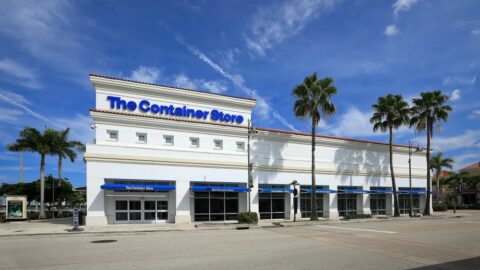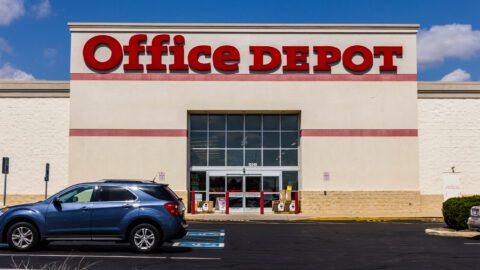Following is Part 2 of the Retail TouchPoints series focused on Best Practices In Workforce Management. Part 1, which appeared in the April 16 newsletter, may be accessed here.
“Making the move to mobile” is vital to streamlining WFM processes and staffing decisions today, according to an Aberdeen Group report, titled: Workforce Management: The Key to Retail Customer Service. In order to maintain customer intimacy, as well as improve employee productivity, the study explained: “Retailers need to transition to more open, integrated and mobile solutions that [allow them] to optimize their workforce management initiatives and also create engaging and valuable customer experiences.”
Aberdeen underscored the value of mobile apps that allow both employees and supervisors to manage schedules, view timesheets and time-off requests, approve payroll, review holiday and sick leave, and more. The result is “a more engaging workforce that is untethered from desktops.”
In another study, IDC Retail Insights concurred, stating that: To best focus on customers’ needs, retailers must “reinvent their WFM tools for a digitally savvy workforce.” IDC noted that many retail employees “are much more likely to interact with peers and employers if communications are digitally delivered to their mobile devices.” In addition, modern WFM tools engage employees and enable them to serve the customer better, “which, by the way, creates a more satisfying work environment.”
While mobile WFM continues to grab headlines and analysts’ attention, most retailers have not yet engaged. In a white paper, titled: Focusing Your Workforce On The Moment Of Truth, 76% of retailer respondents said their stores were not running WFM applications on mobile devices or tablets. (For more about this survey, click here.)
But a number of forward-thinking retailers — including The Container Store, Aeropostale, Bob Evans Farms and The Home Depot Mexico — are engaging in mobile WFM and other innovative WFM strategies.
The Container Store Implements Mobile Chain-wide
Among the retailers allowing mobile applications for workforce management, The Container Store is implementing a chain-wide strategy for all levels of staff. An app for employees desiring mobile access to their schedules and timecard information is under development, said Paul de Freitas, Store Systems and Business Development Director for The Container Store, in an interview with Retail TouchPoints. That capability “is one piece of our mobile employee strategy and will be a huge benefit to our associates.”
The Container Store adopted a phased approach to mobility: The retailer delivered a mobile WFM capability to directors and managers last year, and plans to complete the associate module by mid-2013, said Liz Moughan, Director, Retail and Hospitality Practice Group, Kronos.
“We have launched a mobile reporting dashboard app for all of our general managers and regional and area directors, which focuses on delivering metrics in nearly real-time,” said de Freitas. “A payroll dashboard is a part of that app and is driven by the schedules our stores post in the system,” and by employee time-punch data resident in the WFM application.
“A workforce management system and the data that flows from it,” remarked de Freitas, “is the foundation for a lot of really interesting and actionable metrics.”
Mobility is a next-generation WFM tool that helps retailers “empower their ultimate competitive advantage — their workforce,” added Moughan. “Today’s mobile workforce management solutions provide anytime, anywhere access to built-in workflows and the critical information employees need to stay on the floor, not buried in a back office, and remain focused on the customer.”
Aeropostale Empowers Thousands Of Millennial Associates
Few demographic groups are more mobile and digitally empowered than Millennials (those born between 1980 and 2000). Aeropostale, a fashion retailer targeting girls and boys ages 12 to 17, primarily employs Millennial store associates. In fact, of the retailer’s 25,450 store employees, more than 90% are Millennials.
To reach those employees, Aeropostale has deployed mobile technologies that “enable our employees to communicate, collaborate and manage their ‘worklife’ as efficiently and independently as possible,” according to Julie Sedlock, Group VP of Store Operations for Aeropostale. As a result, Aeropostale was selected as a 2012 winner of the Retail TouchPoints Store Operations Superstar Awards for workforce management.
“To maintain our culture and retain top talent, we are committed to deploying mobile technologies,” Sedlock continued. Millennial associates value flexibility and instant communications, “and feel valued because they are empowered to take ownership of their world of after school.”
For example, previously associates had to go to their store locations to manage their schedules. “Imagine those logistics in our Times Square [New York City] store, where we employ more than 1,000 kids,” noted Sedlock in an April 2013 WFM technology newsletter. “Now they can access the portal from anywhere.”
The mall-based fashion retailer uses a SaaS-based mobile WFM application from Ceridian Dayforce. The tool is designed to improve performance of a modern-day workforce, reduce labor costs and help retailers align the workforce with corporate goals. Sedlock noted that the success of the implementation played a role in Aeropostale being named in 2011 by Fortune magazine as one of the best places to work in the U.S.
Mobile WFM is improving communications between managers and employees, said Kathy Gentilozzi, SVP of HR for Aeropostale, in a session at the annual HR Technology Conference. “For managers, this means receiving data so better decisions can be made,” she explained. The initiative includes payroll in the form of pay cards preloaded with compensation, ideal for a younger, mobile-equipped workforce. Associates get instant and flexible access to funds, and can use their mobile phones to check card balances.”
They also can use their mobile devices for “shift swapping,” Gentilozzi added. Swaps must be made 24 hours in advance, and managers must be alerted, a process streamlined with mobile capabilities.
A Two-Year Journey To Next-Generation Labor Solutions
JDA Software is among the retail technology vendors fortifying solution portfolios with mobile WFM applications. The provider now offers JDA Mobile Shift Connect, JDA Mobile Employee Connect and JDA Mobile Manager Connect. Bob Evans Farms, the restaurant chain and retail food company, is the newest customer of these solutions. The goal of the implementation, announced April 2013, is to help improve labor forecasting and scheduling, and drive proper placement of staff across all 565 Bob Evans locations in 19 states.
The retailer’s journey to “next-generation labor management solutions” started in May 2011 with “a cross functional team tasked with identifying a solution that could deliver a balanced approach to managing labor,” said Harvey Brownlee, EVP of Bob Evans Farms. “Our goals were to drive strong guest satisfaction, improve ease of operation, and improve the team member experience while delivering shareholder value.”
A mobilized retail workforce is bettered prepared to respond to shoppers’ needs, confirmed Scott Welty, VP, Retail Industry Strategy, JDA Software. “Mobilization amplifies visibility, customer service and administrative efficiencies,” he noted. “ With hand-held access to data that enables real-time and optimized service and staffing decisions, managers are ‘unchained’ from the back office. For employees, a mobile workforce solution can have a number of advantages, including on-demand access to their schedules, the ability to pick-up open shifts, and enhanced communication and collaboration with their managers.”
The Home Depot Mexico Cuts Tardiness And Absenteeism Of Outsourced Employees
While mobile applications are in the WFM limelight, time and attendance and cloud-based task management are highly effectual tools being leveraged for managing a workforce ― both internal and external.
External, outsourced personnel, such as security and overnight maintenance crews, must be monitored and managed as efficiently as the internal staff. Third-party team members are valuable and necessary payroll resources whose work directly impacts customer-facing retail functions and in turn, the overall shopping experience.
At The Home Depot Mexico, third-party hires account for more than 2,750 merchandising service providers, janitors, security guards and other essential personnel across the retailer’s 100-store chain. To best manage this external payroll commitment, The Home Depot Mexico leverages a WFM time and attendance application from Reflexis. The solution supports time entry and costing, human resource and payroll applications, labor tracking and more. It also provides a variety of reports, including alerts to impending violations.
Since implementing the time and attendance tool, The Home Depot Mexico has “streamlined and decreased billable hours for outsourced personnel, and reduced absenteeism by almost 60%,” said José Del Angel, Senior Manager of Merchandising Support at The Home Depot Mexico. The retailer also has “reduced tardiness incidents by 30%.”
Many of the DIY retailer’s workforce partners use the same Reflexis system and management reports, and “third-party use of the system is expanding,” said Del Angel. “Our partners value the visibility they are gaining into their employees’ offsite performance metrics.”
The Home Depot Mexico also implemented a cloud-based task management tool from Reflexis for more consistent communications and task execution across all stores. In addition, the retailer uses Reflexis StoreWalk to better monitor in-store operations, conduct audits and store walk-throughs, and manage automatically flagged corrective tasks. Together the WFM solutions provide “enhanced organizational alignment and more timely execution,” said Del Angel, “as well as standardized feedback for better analysis ― all supporting our goal of superior customer service.
Click here to access a pdf of the full WFM report, Parts 1 and 2.












